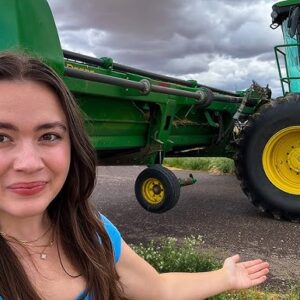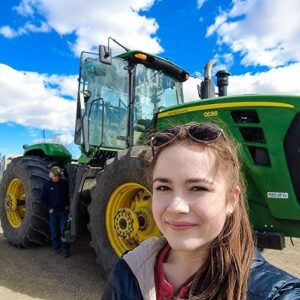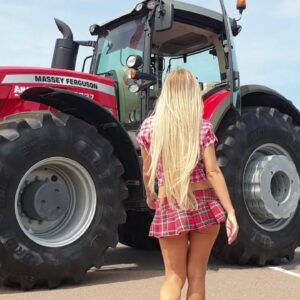Farm Equipment Insurance in the US: Protecting Your Investment
Farm equipment represents one of the most significant investments a farmer can make. From tractors and harvesters to irrigation systems and specialized machinery, these assets are critical for efficient operations and profitability. However, these investments are exposed to various risks—from accidents and natural disasters to theft and vandalism. This is where farm equipment insurance comes into play, providing a vital safety net that protects your hard-earned investment and ensures continuity in your farming operations.
Understanding the Importance of Farm Equipment Insurance
Investing in farm equipment is not just about purchasing machinery; it’s about securing the future of your agricultural business. Farm equipment insurance offers financial protection by covering repairs or replacement costs if your equipment is damaged, stolen, or otherwise compromised. Without this insurance, unexpected incidents can lead to significant financial strain, jeopardizing your operations and ultimately affecting your bottom line.
Farm equipment insurance is particularly important in today’s unpredictable climate. Weather events such as hailstorms, floods, and tornadoes can inflict severe damage on expensive machinery. Additionally, as farm equipment becomes more technologically advanced, the cost to repair or replace these assets rises. A comprehensive insurance policy ensures that you can recover quickly from such setbacks and continue your operations with minimal disruption.
What Does Farm Equipment Insurance Cover?
Farm equipment insurance policies are designed to address a variety of risks that farmers face. While the specific coverage can vary by insurer and policy, most plans include the following core elements:
-
Physical Damage Coverage: This protects your equipment against damage caused by accidents, fire, weather-related events, and vandalism. Whether it’s a collision in the field or a natural disaster, physical damage coverage helps pay for repairs or replacement.
-
Theft Protection: Farm equipment is often targeted by thieves due to its high value. Theft protection covers the loss if your equipment is stolen, ensuring that you are not left without the necessary tools to continue farming.
-
Mechanical Breakdown: Some policies include coverage for mechanical breakdowns, which can be especially useful for older machinery or equipment with high usage rates. This coverage helps cover the costs of unexpected repairs, reducing downtime and keeping your operations running smoothly.
-
Liability Coverage: In some cases, farm equipment may cause damage or injury to third parties. Liability coverage provides financial protection if your equipment inadvertently causes harm, covering legal fees and any settlements or judgments that might arise.
-
Optional Add-Ons: Many insurers offer additional coverage options, such as roadside assistance, rental reimbursement (to cover the cost of hiring replacement equipment while yours is being repaired), and coverage for accessories and attachments that may not be included in the standard policy.
Factors Influencing the Cost of Farm Equipment Insurance
The cost of farm equipment insurance can vary widely based on several factors. Understanding these factors can help you choose the right policy and potentially lower your premiums:
-
Type and Age of Equipment: Newer, more expensive equipment will typically have higher premiums due to the greater cost to replace or repair. Conversely, older machinery might cost less to insure, although this can vary depending on its condition and usage.
-
Usage and Operational Risk: How often and in what conditions your equipment is used can also impact the cost. Machinery that operates in high-risk environments or for extended hours may attract higher premiums due to the increased likelihood of wear and tear or accidents.
-
Location: The geographical area where your farm operates plays a significant role. Regions prone to extreme weather conditions, such as tornadoes or heavy snowfall, or areas with a higher incidence of theft, may see increased insurance costs.
-
Deductibles and Coverage Limits: The amount you choose for deductibles and the coverage limits you require can influence your premiums. Higher deductibles may lower your monthly cost but will require you to pay more out of pocket in the event of a claim. Conversely, lower deductibles provide greater financial ease during claims but at the expense of higher premiums.
-
Claims History: An insurer’s evaluation of your claims history is crucial. A record of frequent claims might lead to higher premiums, as it signals an increased risk to the insurance company.
Choosing the Right Policy for Your Farm Equipment
Selecting the best insurance policy for your farm equipment involves assessing your specific needs and understanding the terms of the policy. Here are some essential tips to help you make an informed decision:
-
Assess Your Equipment and Risks: Begin by taking inventory of your machinery and evaluating the risks associated with each piece. Consider factors such as age, usage, and the typical hazards in your region. This assessment will help you determine the level of coverage you require.
-
Compare Policies and Insurers: Don’t settle for the first policy you encounter. Compare different insurers and their offerings. Look for policies that provide comprehensive coverage at competitive rates and pay close attention to customer reviews and claim settlement ratios.
-
Understand Policy Exclusions: Every insurance policy has exclusions—situations or conditions that are not covered. It’s essential to thoroughly understand these exclusions to avoid unpleasant surprises when filing a claim. For instance, some policies may not cover damage from certain types of natural disasters or wear and tear that results from extended use.
-
Consider Optional Add-Ons: Depending on your operations, you might benefit from additional coverage options. Add-ons like rental reimbursement or roadside assistance can prove invaluable during periods when your equipment is out of service. Evaluate your operational needs and opt for the extras that make the most sense for your business.
-
Review the Claims Process: Before committing to a policy, research how the claims process works with the insurer. A streamlined and customer-friendly claims process can significantly reduce downtime during an emergency. Look for insurers known for their efficiency and prompt service in handling claims.
Benefits of Investing in Farm Equipment Insurance
Investing in farm equipment insurance is not just a safety measure—it’s a smart business decision that can provide long-term benefits:
-
Financial Security: In the event of unexpected damage or theft, insurance minimizes financial losses by covering repair or replacement costs. This financial security allows you to focus on your core operations without the burden of sudden, unplanned expenses.
-
Operational Continuity: Downtime in farming operations can lead to lost revenue and decreased productivity. With the proper insurance in place, you can ensure that your operations continue with minimal interruption, even after a significant incident.
-
Peace of Mind: Knowing that your valuable equipment is protected allows you to operate with confidence. This peace of mind can be especially important during peak farming seasons when every minute of operation counts.
-
Flexibility in Financing: When purchasing new equipment, many financial institutions consider insurance as a mitigating factor for risk. Having comprehensive insurance in place can provide you with better financing options and terms, ensuring that you can invest in the latest technology and machinery without excessive financial strain.
Real-World Considerations and Best Practices
While the concept of insurance might seem straightforward, its practical application in farming requires careful planning and consideration:
-
Regular Equipment Maintenance: Preventative maintenance can reduce the likelihood of mechanical breakdowns and other issues that could lead to insurance claims. Regular servicing not only extends the life of your equipment but can also lower your insurance premiums by demonstrating responsible ownership.
-
Document Everything: Maintain detailed records of your equipment’s purchase, maintenance, and any repairs. Proper documentation can expedite the claims process and ensure that you receive the full value of your coverage in the event of a claim.
-
Stay Informed About Policy Changes: Insurance policies and industry standards can evolve over time. Stay in touch with your insurer and review your policy annually to ensure it continues to meet your needs. Adjustments may be necessary as your farm grows or as new risks emerge.
-
Seek Professional Advice: If you’re unsure about which policy best suits your needs, consider consulting an insurance broker or a professional who specializes in agricultural insurance. Their expertise can provide valuable insights into policy nuances and help you navigate the complexities of farm equipment insurance.
Conclusion
Farm equipment insurance is an essential investment for any agricultural business in the United States. With the high costs associated with modern machinery and the myriad risks that farmers face, a robust insurance policy is not just an expense—it’s a safeguard for your livelihood. By understanding the different types of coverage, the factors influencing insurance costs, and the best practices for selecting a policy, you can ensure that your investment in farm equipment is well protected.
From providing financial security in the face of unexpected damages to ensuring operational continuity during critical farming periods, the benefits of having the right insurance policy are clear. As the agricultural industry continues to evolve and face new challenges, staying proactive about protecting your assets is more important than ever.
By taking the time to assess your needs, comparing different policies, and working closely with trusted insurance professionals, you can find a solution that offers comprehensive protection without breaking the bank. Ultimately, farm equipment insurance is about more than just mitigating risk—it’s about empowering you to invest in the future of your farming operations with confidence and peace of mind.
Invest in farm equipment insurance today, and protect the foundation of your agricultural enterprise for years to come.





